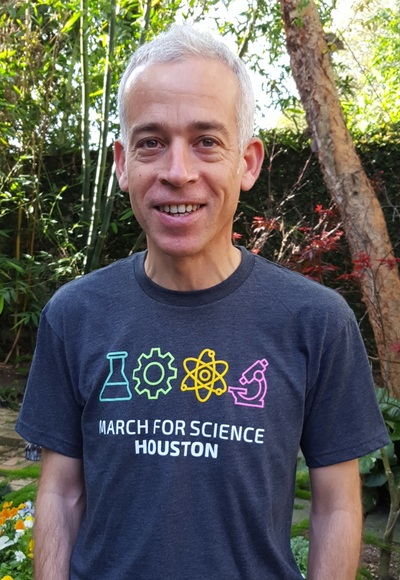Ido Golding
Professor
Examining the way living cells process information from their environment and make decisions based on that information. The aim is to form a quantitative narrative for the dynamics of cellular decision-making and unveil simple principles that underlie this process.
Research Description
RESEARCH INTERESTS
Interest in many of the classical model systems studied in biology has been reignited by a recent influx of new insights, largely thanks to the application of quantitative approaches, in both experiments and theory. This "quantitative revolution" encompasses a hierarchy of levels: From the single molecule (for example, using optical tweezers to study the interactions of biomolecules in vitro), through the single cell (studying cell-to-cell variability in gene expression by fluorescence microscopy), up to the level of whole populations (where sequencing methods are used to quantify genome-wide expression patterns). I have chosen to study the E. coli bacterium and its virus, the bacteriophage lambda. These two organisms serve as basic paradigms for many physiological processes, including gene expression, epigenetic stability and switching, viral-host interactions, DNA replication, genetic recombination and more. I have developed and applied new quantitative tools for probing cellular interactions within these systems by combining genetic manipulation and high sensitivity fluorescence imaging. This strategy allows us to follow dynamic processes in individual cells, in real time, with a single-event resolution. In my lab, such quantitative experimental work will be accompanied by mathematical modeling, with a constant feedback between the two endeavors.
The work employs a set of skills broader than those generally mastered within a single discipline, including the techniques of microbiology and molecular genetics, real-time imaging of live cells to make dynamic measurements, and data analysis using the engineer's toolbox of signal and image processing, all accompanied by the theoretical tools of dynamical systems theory, stochastic processes, non-equilibrium phenomena and more. As such, this practice of modern in vivo biology, combined with the high intellectual effort of a quantitative approach, will contribute significantly to a young scientist's training experience, better preparing them for the future world of Systems Biology.
Professor Ido Golding received his Ph.D in physics from Tel Aviv University (Israel) in 2001. Originally trained as a condensed matter theorist, he later spent five years learning the experimental arsenal of modern molecular biology.
From 2002 to 2006, Professor Golding has been a Lewis Thomas Research Fellow in the Department of Molecular Biology at Princeton University. He joined the faculty of the Department of Physics at the University of Illinois at Urbana-Champaign in January 2007.
